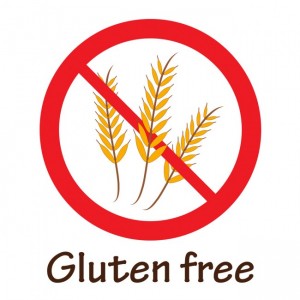What Really Makes a Spirit Gluten-Free?
Since beginning work with Purity Vodka (2012 NY International Spirits Competition medal winner) as their national brand ambassador in 2010, one of the most commonly asked questions I'm asked is, “Is it gluten-free?” My inclination was to state the facts as I understood them: all distilled spirits are gluten-free. As it turned out, many of our other employees were also being asked the same question regularly, which prompted Purity Vodka to get a third party test to verify what we already knew: we are gluten-free. But the information about what makes a spirit gluten-free doesn't stop there. I have worked in the beverage industry since 1998, and in that time, I have heard just about every story imaginable about what this product or that product does to a person. People claim to be allergic to specific categories of spirits, citing certain reactions they’ve had in the past as proof. Myths about alcohol are as common and as numerous as the people who drink it, and I for one have often wished that there was a definitive test that could set the record straight.
According to the most recent TTB ruling, a third-party test is required for a company to make gluten-free claims in advertising, but unless the product is made from gluten-free ingredients, it can not be advertised as gluten-free on the label. (www.ttb.gov/rulings/2012-2.pdf)
One need not look much further than the internet to find conflicting stories on whether or not distilled spirits contain gluten. Celiac.com, a website which proclaims that it has been providing “celiac disease and gluten-free information since 1995”, clearly states, “all distilled alcohols are gluten-free.” (http://www.celiac.com/articles/222/1/Gluten-Free-Alcoholic-Beverages/Page1.html) Scroll down to the comments section, however, and there are a myriad of responses from people claiming that certain types of alcohol elicit different types of physical reactions.
According to the Mayo clinic, “In some cases, what may seem to be alcohol intolerance is caused by a reaction to something else in an alcoholic beverage — such as chemicals, grains or preservatives. In other cases, reactions are caused by combining alcohol with certain medications. In rare instances, reactions to alcohol can be a sign of a serious underlying health problem that requires diagnosis and treatment.” With so many variables to consider, it makes no sense to me to blame gluten for one’s adverse reactions to spirits. Allergies to other foods, sensitivities to citric acid, hypo-glycaemia and diabetes… aren’t all of these things more likely culprits than gluten?
In preparation to write this article, I spoke with several different distillers, including Marko Karakasevic of Charbay, a 13th generation distiller who knows the science of spirits as well as anyone. He agrees with celiac.com and stated, without hesitation, “Anything distilled cannot possibly contain gluten. Distillation is the process of separating alcohol from everything else in the mash, and unless gluten can travel with vapor, there’s no physical way that it could be found in the distillate.” So what happens after a product has been distilled is much more likely to be responsible for adverse physical responses in consumers. It is also important to mention that alcohol is a poison and human being’s reactions to it are as varied as we are diverse. While some people have extremely high tolerances to alcohol, others are drunk after one drink. Some people turn red when they drink and others fall asleep. With such an immense number of physical, chemical and psychological variables, it seems absolutely ridiculous to me to blame gluten for an undesirable reaction to alcohol.
Let’s talk about glycerin for a moment. You know, the unspoken additive that brings mouth-feel and texture to spirits that would otherwise not have any? Think certain people may have negative reaction to it? How about artificial flavorings? Caramel-coloring? A certain percentage of additives are legally allowed in spirits without necessitating labeling. Isn’t it possible that these are to blame for undesirable side affects?
Another (and to me, more likely) possibility is, of course, the mind. Ever heard of the placebo effect? One in three people who are administered a “medicine” for an ailment show signs of improvement. Sugar pills, saline injections, and other items meant to look like real medicine are administered to people, and even though they have no direct affect on the affliction, subjects show signs of improvement. What this means in relation to this article is that the psychosomatic element of this issue cannot be ignored. If a person believes that something is going to affect them in a particular way, then one in three will actually experience the expected effects.
It is that exact psychosomatic element which advertisers rely on. By creating associations between products and images of broad appeal and desirability, people are programmed to seek out something that they have been exposed to in advertising. In advertising, a set of positive beliefs associated with a product is the key to its success. Having conducted dozens of blind tastings in the past three years, I have clearly seen the difference between well-advertised and well made. New $7 Cup of Coffee at Starbucks
The TTB won’t allow products with gluten in their ingredients to identify themselves as “gluten-free” on their label because of the FDA statement that, “…for some food matrices (e.g., fermented or hydrolyzed foods) there are currently no available validated methods that can be used to accurately determine if certain foods contain < 20 ppm gluten.” They will also not approve labels with the “processed to remove gluten” claim on them unless the application includes a description of the method used to remove gluten, as well as results of testing using the R5 Mendez Competitive ELISA.
As most people are aware, however, regulation and fact are all too often on opposite ends of the reality spectrum. Regardless of what the TTB and the FDA say, according to the experts of distilling, unless a spirit comes into contact with gluten after the distillation process, there is none present in the distillate. Advertising and marketing may have successfully convinced many of us otherwise, but facts are facts. If you’re getting sick from spirits, it’s not because of the gluten!


